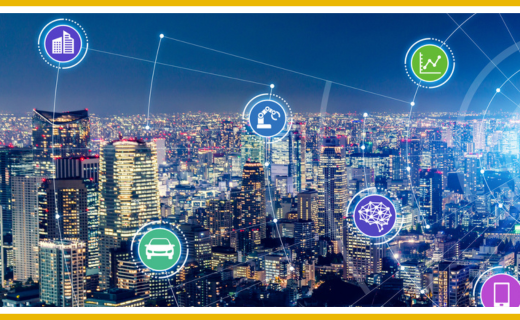17 March 2025
Recent advances in Artificial Intelligence (AI) are leading property managers to look at how it can be adopted to enhance the overall experience for residents.
The FirstPort Group’s Head of Critical Infrastructure, Stuart Wilcox, is a qualified chartered engineer with 35 years of experience and insight within the manufacturing, property, and utilities sectors. He explains how leveraging technology could prove fundamental in maintaining efficiency, transparency and excellence across FirstPort-managed developments.
Predictive maintenance
FirstPort is responsible for over 100,000 mechanical and electrical assets across its properties, and our Critical Infrastructure team is committed to ensuring this equipment operates effectively by proactively identifying risks and addressing faults before they escalate.
Last year, we launched a pilot scheme at a large residential development in London, implementing an AI-powered smart building platform to monitor the performance and condition of the building’s essential equipment, such as boiler plants and lift systems.
The pilot enabled us to explore how we can identify patterns and anomalies in the data generated by the AI platform to predict when equipment is likely to fail. The information proved essential in safeguarding the equipment in the building and we were able to prevent potentially costly breakdowns and minimise disruption to our residents. For example, we were alerted to a drop in the temperature of the heating system at the development, and we rectified the problem before any residents detected a change or outage.
Data collection
As property managers, the data collected from an AI-powered building management platform is at the core of understanding and managing the lifecycle of a building’s assets. Often, different pieces of equipment in a building, which is each managed by its own subcontractor, generates data that is stored in its own separate system. By linking each of these systems into a single, accessible platform, we see this data in one place – a single point of truth. We can use this data to make more informed decisions about how we manage the equipment at our developments and improve the service to residents.
Our AI building management platform
The success of the pilot scheme has resulted in the wider launch of the AI-powered smart building platform, which will be gradually introduced across some of our developments. The platform will revolutionise the management of our buildings to improve cost efficiency, transparency and enhance the resident experience. It even allows us to analyse how weather impacts the building’s assets, and we can use this data to identify areas for improvement. Greater use of machine learning within the AI arena will enable us to focus on the trends and alerts, providing more focused oversight and interventions.
Our smart buildings platform can include any device that provides a digital signal. This includes Internet of Things (IoT) devices, energy management systems, and building management systems (BMS). We plan to expand this further to implement smart lighting, security and fire systems.
The human touch
AI cannot be used in isolation, and it will always work best when combined with professional expertise and guidance. The most important part of what we do will always be our direct work with site teams. This includes providing training to help them to understand the building’s equipment and any potential issues to look out for. This hands-on support is invaluable, and it ensures our operations teams feel confident in managing the equipment, knowing they can rely on our Infrastructure team for guidance.
Future outlook
Whilst we must not forget about the importance of human skill and expertise, we will continue to look at how we can use the data collected using an AI platform to avoid costly disruptions and improve the property management service we offer to customers.
Note: This article was originally published in Property Week.




